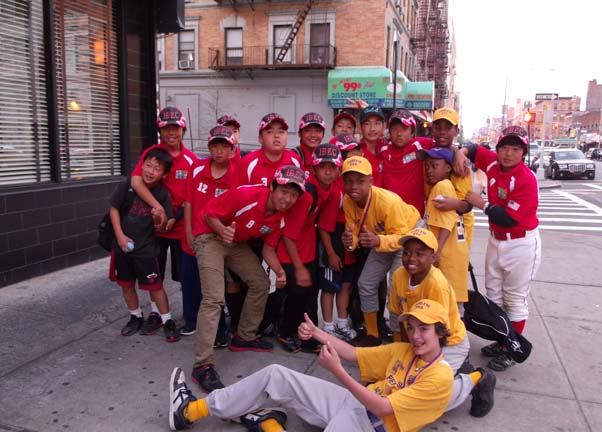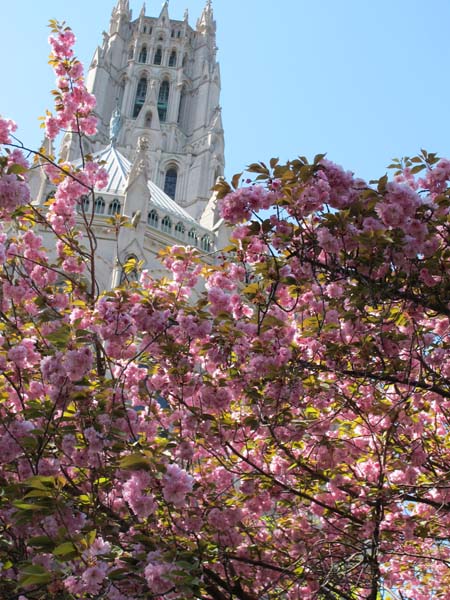
Sakura Festival 2012 in Harlem was amazing! I was honored to join the media team assembled by New Heritage Theatre Group’s Voza Rivers and Kats Abe and the Japanese Chamber of Commerce & Industry of NY, Inc., to promote Harlem’s Centennial Celebration, Sakura Cherry Blossom Festival at Sakura Park and Grants Tomb, a two-day event April 14 & 15.
Our collaboration showed stunning results with media placements in the international press, especially Japan television stations and newspapers; New York’s ethnic media, television, radio, print and social media; major media outlets like New York Times, NY Daily News, and NY1.
As you may know, Sakura Japanese Cherry Blossom ceremonies are held annually in Washington DC and throughout New York City. Sakura means cherry blossom tree in Japanese. But the Harlem event was special because it is the most authentic.
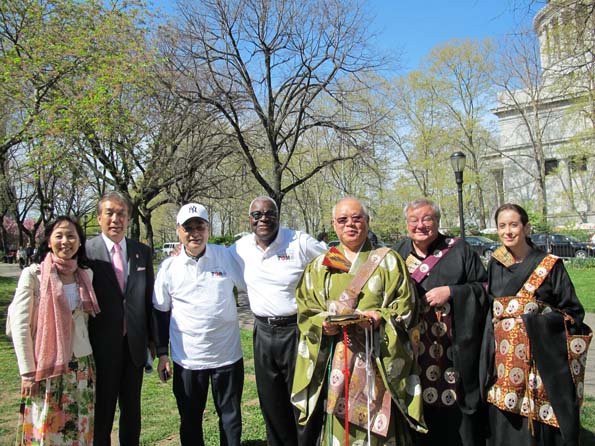
The original dedication ceremony where the cherry blossom trees were presented by the Japanese government as a friendship gift to New York City, happened in Harlem’s Sakura Park 100 years ago. Unlike Washington DC where all the trees were planted in the same general area, NYC’s gift of over 2000 Japanese trees were divided and planted in several parks across the city — Central Park, Riverside Park, Sakura and other sites. At the time, Sakura Park was known as Claremont Park and owned by the Rockefeller family, who later gifted the re-named park to the city.
To mark this year’s centennial, a two-day celebration was held. The first day was divided into two parts: the morning session featured a formal re-enactment of the original gift presentation and US and Japan dignitaries and speakers; the afternoon presented a music festival with over 25 Japanese and American artists booked to perform.

According to a New York Tribune, 1912 article: ”Cherry Trees Planted: Commemorative Tablet Unveiled East of Grant’s Tomb, 8000 Witness Ceremonies…thirteen diminutive kindergarten girls, clad in varicolored kimonos, with their tresses dressed in Japanese style, planted the trees…”
This year’s re-enactment featured a procession of several multicultural female college students wearing colorful kimonos positioned in front of the plants in a mound of earth to be planted later. The tiny trees were descendants of the original trees. Most of the original trees died, as their lifespan is about 65 years or were cut down for various reasons like disease or renovation. Many cuttings were kept and replanted. This being ‘the Spring that came too soon,’ the centerpiece Yoshinos, a varietal whitish petals—bloomed earlier than usual. So those trees were bare. But on the south end, the Kanzan trees, with its darker-pink flowers, were peaking.
The connection between Harlem and Japan became clear from various speakers’ reflections. For instance, the National Park Service superintendent Shirley McKinney was on hand to discuss Gen. Grant’s Tomb history—President Grant was the first president to visit Japan. Lisa Staino-Coico, City College, explained that the first CUNY president was the first US Japanese ambassador. Takashi Kano, Nippon Club president gave a history of the club for early Japanese Americans in the city. Event MC, Lloyd Williams, Harlem Chamber CEO, in his greetings reminded the audience about “Harlem’s beautiful oasis: Sakura Park, International House, Riverside Church, Columbia and Barnard University, Manhattan School of Music and Grants Tomb. “
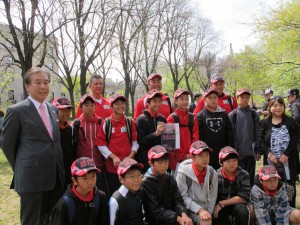
On the second day (Sunday, April 15) a baseball tournament was held at Marcus Garvey Park between Harlem Little League and the West Coast Japanese Little League. All-star Seattle Mariner pitcher Shigetoshi Hasegawa held a baseball workshop for the neighborhood children
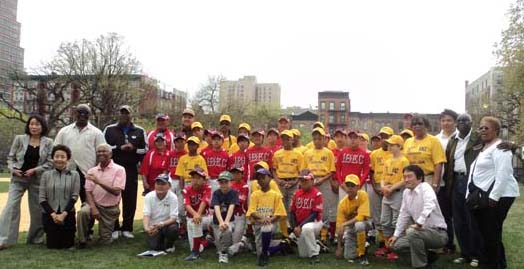
The trees are noted for the extreme beauty of its blossoms that die quickly. Symbolically the blossoms have become associated with poetry and Bible verses as they only last a few days. So, let’s cherish our city’s lovely cherry blossom trees wherever you see them this year!
